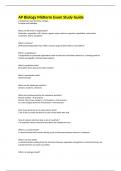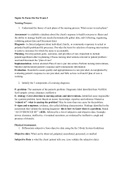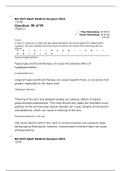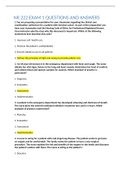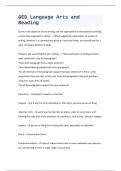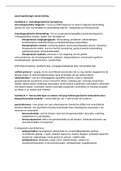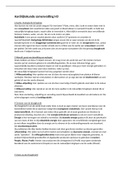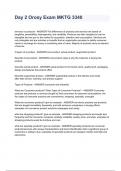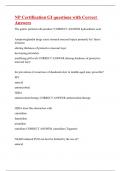Tentamen (uitwerkingen)
AP Biology Midterm Exam Study Guide
- Vak
- Instelling
AP Biology Midterm Exam Study Guide A hypothesis must be these 2 things... Testable and falsifiable What are the levels of organization? Molecules, organelles, cells, tissues, organs, organ systems, organism, population, community, ecosystem, biome, biosphere What is a theory? Well-te...
[Meer zien]
